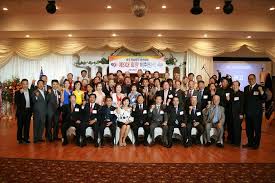CA
ON
호남향우회 (토론토)
전화: 647-981-0404
7 Bishop Ave. #2411 Toronto, ON

캐나다 공인 컨설턴트 - 한인크레딧 컨설팅
전화: 416-897-8438
1 High Meadow Place, Unit 2 North York, ON

행복부동산 -수잔정 Home Standards Brickstone Real
전화: 647-866-7878
180 Steeles Ave W Unit 30, Thornhill, ON

준비된 바이어 그룹 , BAYTREE 이너써클
전화: 416-226-5999
7030 Woodbine Ave. Suite 103 Toronto, ON

한인을 위한 KOREAN JOB BANK
전화: 6476245886
4065 Chesswood Drive Toronto, ON
.jpg)
한인 시니어 탁구협회
전화: 647-209-8933
1100 Petrolia Rd Toronto, ON
4.jpg)
홍이표치과
전화: 647-985-0456
9625 Yonge St #4, Richmond Hill, ON Toronto, ON
1.jfif)
럭키 여행사
전화: 416-938-8323
4699 keele st.suite 218 toronto Ontario M3J 2N8 toronto, ON

변호사 정찬수 법률사무소
전화: +82 2-536-1144
서울특별시 서초구 서초동 Toronto, ON
1.jfif)
최고의 POS시스템 - 스마트 디지탈 POS
전화: 416-909-7070
4065 CHESSWOOD DR. NORTH YORK Toronto, ON
0.jfif)
조준상 (로열르페이지 한인부동산 대표)
전화: 416-449-7600
1993 Leslie St. Toronto, ON

토론토 기쁨이 충만한 교회
전화: 416-663-9191
1100 Petrolia Rd Toronto, ON

It would be a place where all the visitors including me share the life stories and experiences through their activities,especially on life as a immigrant.
Why don't you visit my personal blog:
www.lifemeansgo.blogspot.com
Many thanks.
블로그 ( 오늘 방문자 수: 126 전체: 226,206 )
동아시아의 주역, 중국 일본 그리고 한국, 북한에 공동 대처
lakepurity
2009-10-10
조그만 나라, 조국 한국이 이웃의 대국 중국, 일본과 어깨를 나란히 하고, 동아시아의
큰 경제적 세력중 하나로 우뚝서서 지역의 안전과 번영을 위해 정상들이 머리를 맛대고
풀어가기위해 3개국 정상회담을 하면서, 조국의 가장 번영과 안전에 가장 큰 걸림돌이
되고 있는, 망나니 같은 북한의 무모한 핵장난에 공동 대처 하기로 의견을 모으고, 또 지여긔
번영을 위해 공동 노력하겠다는 의지를 표명한것은, 보기에도 반가운 소식이다.
여기에 3개국 정상들의 회동 내용을 보도한 Globe and Mail의 기사를 옮겨 본다.
East Asia powers show united front on North Korea
China, Japan and South Korea vow to seek early restart to nuclear weapons talks
Yoko Nishikawa
Beijing ― Reuters
Published on Saturday, Oct. 10, 2009 12:05AM EDT
China, Japan and South Korea vowed to seek an early restart to talks aimed at ending North Korea's nuclear weapons ambitions, and also presented a united front on regional economic co-operation at a summit on Saturday.
The broad promises to work together on security and economic issues came at a meeting between Chinese Premier Wen Jiabao, South Korean President Lee Myung-bak and new Japanese Prime Minister Yukio Hatoyama, who has made strengthening regional ties a keynote of his foreign policy.
“We will make joint efforts with other parties for an early resumption of the Six-Party Talks, so as to safeguard peace and stability in Northeast Asia,” said the joint statement issued by the leaders at the end of their talks in the Chinese capital.
“The three countries remain committed to the development of an East Asian community based on the principles of openness, transparency and inclusiveness as a long term goal.”
The vows to co-operate on North Korea and on economic growth are unlikely to make any immediate difference. But they underscored the growing pull for the three Asian powers to set aside some of their friction and seek common ground.
The show of unity may also add pressure on North Korea to return to nuclear disarmament negotiations. Beijing is the closest the isolated North has to an ally.
The combined GDP of Japan, China and South Korea accounts for 16 per cent of the world's total output, with Japan and China respectively the world's second- and third-biggest economies.
In April, a month before its second nuclear test, North Korea said the six-party talks – among the two Koreas, China, Japan, Russia and the United States – were defunct. It walked away from those talks last December.
This week, North Korea's top leader Kim Jong-il offered visiting Chinese Premier Wen a heavily hedged statement that his government could return to multilateral negotiations, possibly the six-party talks, provided it first saw satisfactory progress in any two-way talks with the United States.
Washington has said it is open to talks with Pyongyang as long as that leads to a resumption of the six-party talks.
Mr. Hatoyama, who took office on Sept. 16 after his Democratic Party trounced the long-dominant Liberal Democratic Party, has said he will seek stronger ties with Beijing, which have long been strained by distrust over history, sea boundary disputes and worries over China's growing military and political clout.
Tokyo's relations with Beijing and Seoul chilled during then-prime minister Junichiro Koizumi's 2001-2006 tenure when his visits to the Yasukuni Shrine for war dead outraged Japan's neighbours, who see the Shinto site as an unrepentant symbol of Japan's past militarism.
All three of Koizumi's Liberal Democratic Party successors refrained from paying respects at the shrine, driven at least in part by a desire for steadier political and economic co-operation with fast-growing China.
Mr. Wen, Mr. Lee and Mr. Hatoyama also sought to highlight hopes for deeper economic co-operation and integration.
“In the spirit of facing history squarely and advancing towards the future, the three countries will explore the potential and expand the area of co-operation,” the leaders said.
They will step up efforts to improve the quality of economic development, oppose trade protectionism, and seek progress in the Doha round of trade liberalization talks, the leaders said.
China is now Japan's biggest trading partner, and the second largest export destination after the United States. South Korea, meanwhile, was Japan's third-biggest export market in 2008.
Mr. Hatoyama has been seeking deeper ties with Asian partners and has promoted the idea of a regional grouping inspired by the example of the European Union. The joint statement stressed that an “East Asia community” was a “long-term goal“.
“China-Japan-ROK co-operation will have many opportunities for development in the coming decade,” said the statement. The ROK is the Republic of Korea, the official name of South Korea.